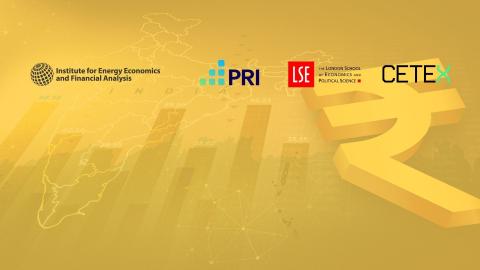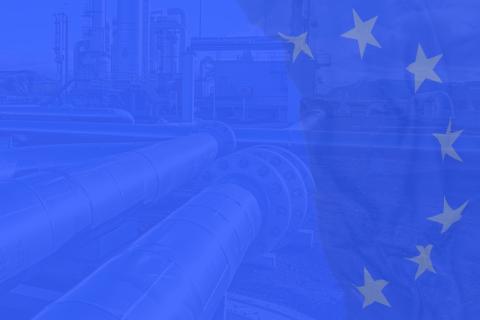Indonesia’s Illegal Coal-Trafficking Epidemic Requires an Impartial Inquiry
[Editor’s note: This commentary first appeared in today’s Jakarta Globe.]
Indonesia, the leading supplier to the seaborne thermal coal market, produces 420 million tons of coal per year, according to its official tally.
But the unofficial tally is much higher.
It’s an open secret, in fact, that millions of tons of Indonesian coal are being mined and shipped out of the country illegally. Last year at the Coaltrans Asia conference in Bali, R. Sukhyar, the minerals and coal director at Indonesia’s Ministry of Energy, estimated such shipments totaled 50 to 60 million tons annually. Other estimates put annual illegal shipments as high as 90 million tons, worth some $5 billion (58 trillion IDR).
Whatever the exact amount, the government of Indonesia is losing hundreds of millions in royalty revenues each year on these illegal exports. Coal royalties are important to the fiscal health of the country—they account for $4 billion of the Indonesian national budget of $170 billion this year—and government services suffer when royalty programs aren’t rigorously enforced.
Indonesia, of course, is an important global supplier of coal. More than 80 percent of its annual production is exported, mostly to India, Japan, South Korea and India, and its coal exports—both legal and illegal—affect global markets. Illegal exports create a special, pernicious effect on the coal industry as a whole by undermining efforts to manage supply and rebalance prices.
Coal markets today are shrinking rapidly. The price of coal in the Asian seaborne market has dropped by about 50 percent since 2011. The industry is oversupplied and likely to remain so for the foreseeable future. Illegal exports only exacerbate that challenge.
RAPID GROWTH AND LOOSELY CONTROLLED PORTS GAVE RISE TO INDONESIA’S EPIDEMIC OF ILLEGAL SHIPPING. The country’s process of licensing, customs and royalty collection maintains the official tally of annual coal production. But neither ports nor coal-transfer system are as tightly controlled as they should be. Opportunity abounds for producers to escape regulation. Much of the avoidance happens in Indonesia’s network of small private and unmonitored ports, and much of it occurs at offshore transfer points that are difficult to monitor.
The problem stems from the roaring days of global coal market expansion during the mid-2000s, when Indonesia saw a huge number of new companies, new permits and news investment in coal production. Indonesia coal production skyrocketed to 420 million tons in 2013 from 174 million tons in 2006 in a difficult-to-manage boom that helped evasive companies get away with either ignoring reporting requirements altogether or simply under-reporting their coal production.
The government is raising coal-royalty rates in a move that will only magnify the competitive advantage royalty-avoiding producers hold over reputable companies that follow production- and export-reporting requirements. Thankfully, Indonesia’s illegal coal-export activity is under growing scrutiny today, although recent central government efforts at various reforms have done little so far to actually reduce illegal shipments.
Indonesia leaders seem well aware that unreported or under-reported exports undermine broader policy objectives of improving national energy security, providing sound management of Indonesia’s finite natural resources, having effective border control and showing leadership in international trade management.
Yet it’s unlikely the government will succeed on its own. Illegal coal mining and shipping is embedded in the economic fabric of Indonesia. Financially powerful interests support the status quo. Unreported or underreported activity has become a crucial source of revenue for regional political interests, and even the Indonesian Coal Mining Association says it finds little to support in reform proposals. The drive to police illegal production and trafficking is also stymied by deeply endemic government corruption.
THE INDONESIAN COAL INDUSTRY AND INDONESIA’S GOVERNMENT COULD BENEFIT IMMENSELY FROM AN EXTERNAL AND IMPARTIAL INVESTIGATION INTO ILLEGAL COAL TRAFFICKING. Indonesia and its people are currently being shortchanged by the absence of a business climate committed to a level playing field across its coal industry. Reform is in the national interest—and it makes good business sense, too, because it would tighten up the seaborne coal markets and provide some price stability for Indonesia’s largest source of export revenue.
When corruption is as pervasive as it is today in Indonesia’s coal industry, it is difficult to maintain a national effort to reform it. This is not an uncommon challenge, and is often best addressed by outside parties invited by the authorities to observe, report and enforce change. Reputable business, governmental and judicial officials are often brought in to help companies or countries find the right long-term path toward restoring confidence where confidence has been lost.
Many mechanisms exist to empower an independent organization with the authority to act. An external investigation of illegal coal shipping in Indonesia could go a long way to establishing a strong basis for establishing honest reform.
Tom Sanzillo is IEEFA’s director of finance.
















